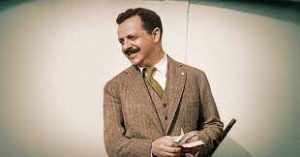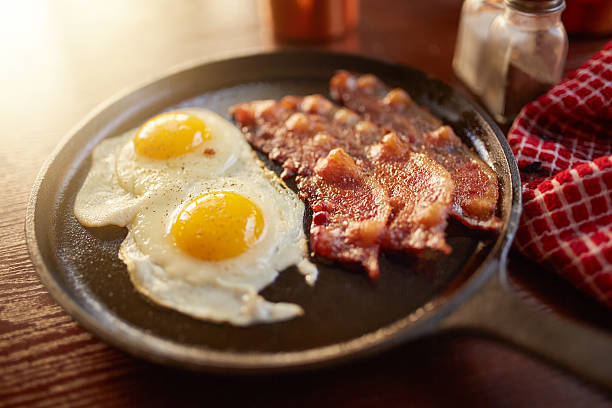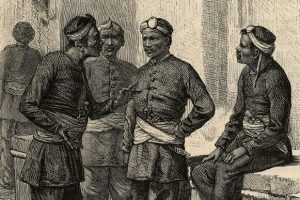If there were a breakfast that screamed American, it would probably be Bacon and eggs. Since the colonial period, Bacon has undoubtedly been the center of the American diet. Pigs are very easy to raise, and the brining/salting method used to preserve Bacon allowed the meat to flourish in the days before refrigeration.
Bacon has exploded in popularity in recent years, with restaurants, festivals, and home chefs creating all kinds of wacky things with it.
On the other hand, Bacon has a special place in the American imagination because of Bacon’s typical American meal and eggs – perhaps with a slice of bread or some potatoes on the side. It is THE ultimate American breakfast. An American breakfast is available on menus outside of the United States to distinguish itself from Irish, English, and Continental breakfasts.
Bacon’s connection with the American breakfast, believe it or not, is just a century old. Previously, most Americans ate more basic, typically vegetarian breakfasts consisting of fruit, a grain porridge (oat, wheat, or corn meals), a roll, and generally a cup of coffee.
So, how did Bacon come to be linked with breakfast in America? Let me present you to Mr. Edward Bernays, the founder of public relations and advertising. The “Father of Public Relations,” Edward Bernays, and a great marketing strategy are the reasons.
Edward Bernays – Father of Public Relations

Bernays, the Austrian-American nephew of Sigmund Freud, the “Father of Psychology,” was a pioneer in public relations and propaganda. Many of his marketing efforts, like breakfast, altered large swaths of American society and the way we think about companies and branding.
Before the Industrial Revolution, Americans used to eat large “farmer-style” breakfasts, which included Bacon and eggs. Both of these foods are very common on the farm and are easy to buy.
However, after the Industrial Revolution, many people moved from the countryside to the big cities during the Progressive Era, and breakfast was lighter, healthier, and faster. This, thanks in part to religious leaders such as John Harvey Kellogg, helped increase the popularity of cereals. And before you ask, yes, it’s Kellogg’s.
Religious people believe that a bland vegetarian diet helps prevent sinful thoughts and connects spiritual success, the importance of a healthy diet, and diligence.
Above all, Americans are afraid of indigestion. And, eating more and more breakfast is thought to cause abdominal pain and ultimately lead to a lazy work ethic. It was the combination of these critical events that led to the end of the big breakfast culture. People worked around the house all day, needed a quick and easy breakfast, and needed a healthier diet correlated with religious ethics. And good artistry. This means that bacon consumption is significantly lower and fruit consumption is higher.
But how did publicize bacon and eggs as breakfast?
The Beech-Nut Packing Company approached Bernays in the 1920s, which produced everything from pork to the iconic Beech-Nut bubble gum. Beech-Nut sought to boost bacon demand among consumers.
Bernays was well aware that the American public was growing more health-conscious, and who do people go to for health advice? Doctors.
Bernays approached his agency’s internal doctor, asking if it would be beneficial for Americans to resume their heavy breakfast habits. Because of his position inside the corporation, the doctor agreed to verify this.
Bernays then had the doctor write to 5,000 of his colleagues, confirming that a more extensive breakfast was healthier for you.
He created a “research” based on the confirmations of the other doctors. They published it in major newspapers throughout the country.
This study of doctors pushing the American people to eat a larger breakfast. This specifically, ‘Bacon and Eggs’ – was widely publicized at the time in major newspapers and magazines. As a result, Bernays and his team of medical professionals helped Beech-earnings Nut’s skyrocket.
And with that, he transformed the classic American breakfast’s visage. All due to a cunning publicist who also happened to be the nephew of the contemporary psychotherapy’s creator.
While marketing efforts do not necessarily need to have an enormous cultural impact on our culture, there is one thing you should remember. With the correct branding, even something that seems utterly impossible at the time can be made to work. This is because people are fluid, easily swayed, and always looking for the next big thing.
Also Read: Breakfasts Ideas for Lazy Sunday Mornings.









